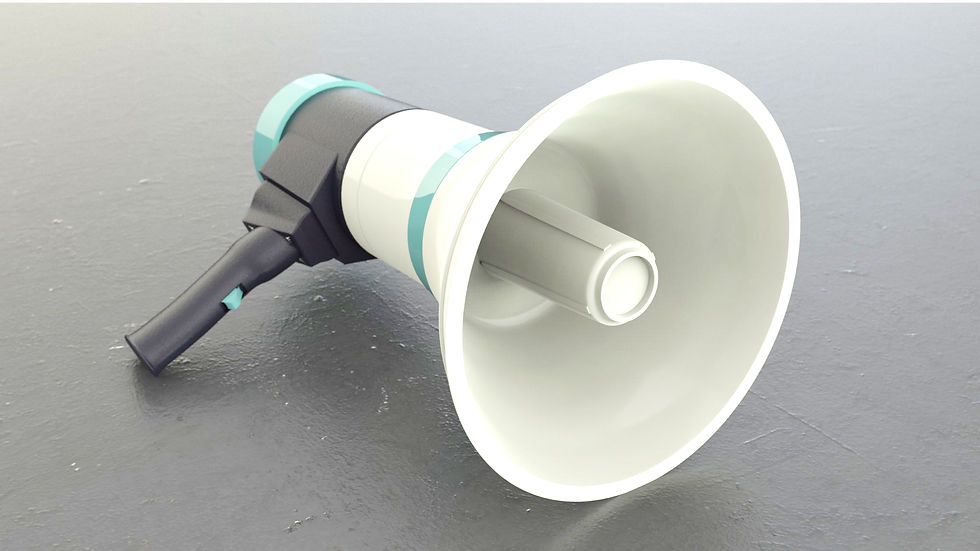The Benefits of Working with an Editor Instead of an App
- Adrienne

- Sep 8, 2025
- 5 min read
Updated: Nov 27, 2025
Why skipping the editing stage may not be worth the savings

As a writer eager to release your words into the universe, you may have considered trying to save a few bucks by not hiring an editor. It's tempting to simply upload your writing into a program, accept all the suggestions given, and move quickly to the next stage of publishing. But you are likely doing yourself and your writing career a great disservice by not taking the time to partner with an editor. Admittedly, I’m a bit biased in this discussion, but I hope you’ll hear me out when I explain why.
An editor’s number one role in the editing process is to represent your ideal reader and provide feedback accordingly. If you are doing a developmental edit, they may highlight concerns about the flow of the narrative and missing or confusing sections. Throughout a copy edit, your editor may propose alternative word choices or phrasing. And while proofreading, they may point out typos that replaced your intended words with synonyms. These are all things that are difficult for even the most intelligent systems to consider correctly 100% of the time. These systems were initially designed to work with corporate communications such as emails, memos, and business cases so they don’t often translate smoothly to creative writing or non-fiction pieces that are intended to have more personality to them or flow across multiple chapters.
Editors can give writers piece of mind in several ways:
Collaboration
Writing can be a solitary experience. Until you’ve put words on paper, there’s nothing to talk about, really. And while writing groups and eager fans can provide support along the way, an editor is best positioned to give you real, usable feedback that is tailored to your project at any stage. They can (and should) ask questions regarding your ideal reader, your writing preferences, and your vision for the piece. They can even ask how you’d like to receive their questions and comments. And you may find during the discussion of these points that you’re not a good fit for each other – That’s okay! The editor that works best for you may not be the same editor recommended by your friend or colleague. But finding that author-editor fit is so valuable. Before a single word is edited, you and your potential editor can establish ground rules, building a working relationship that will carry you both throughout your project(s).
Continuity
When you work with an editor across a longer project (or several smaller ones), they build up a greater catalog of your style choices. These choices, in spelling, phrasing, and structure, are what make your voice yours. The easier an editor can recognize it, the more effectively they can do their job. In fact, when beginning a project, editors create a style sheet to record these nuances. Do you prefer to spell your numbers or use numerals? How do you indicate character speech, internal thoughts, or quotations? Do you use the Oxford English Dictionary or Merriam-Webster’s? Once they have edited a long enough body of your work, your editor will be able to work through future writing without asking you about each decision, speeding up the editing process (and reducing the mental cost for you).
Compliments
There’s a certain amount of flattery that goes on in any working relationship. But while a compliment made at a dealership may sell a single car to a single customer, complimentary feedback given to writers is designed to strengthen their work and improve the outcome. Yes, an editor is hired to identify errors and concerns within your writing, but they will also highlight what’s really working for them as they read your work and what you, as a writer, do well. This is so you can expand upon your strengths and focus your energy on what readers will be most interested in and will engage with. This encouragement while you’re in the depths of your editing phase may be just the thing you need to fill out that word count or to start the marketing process. Plus, it always feels warm and fuzzy to hear you’re doing something well.
Confidence
Much like medical professionals have their ethos to “do no harm,” the aim of all editors is to “introduce no errors.” It may seem a bit backward when editors are considered the experts in identifying errors but the work is more involved than that. Any change will require some rewriting, even if it’s just adding or removing a letter, and it is here that it is critical not to make a new mistake.
When suggesting a change or correcting a misspelling or odd phrasing, it’s an editor’s job to ensure that your meaning is not lost. To do that, an editor has to pay close attention to the work as a whole and understand both your message and the audience you’re trying to reach. Knowing those two key pieces of information, an editor can determine where changes might make the piece stronger. This could mean suggesting a different word choice, the reordering of a few sentences or paragraphs, or even the use of a bulleted list instead of the looser structure of a long sentence, all to better serve the purpose of the piece.
Control
Ultimately, you are the author and remain the author even after an edit (or two or three). So anything that an editor suggests to you remains just that: a suggestion. You have the ability to accept, reject, or question every change made by a real human editor. In many cases, where a more complex or involved change is being suggested, your editor will include their comments and justification for their suggestion within the context of the whole piece. By contrast, a program will be biased towards their pre-loaded writing style and grammar rules and will simply assume you are wrong and it is right. No debate, just a silent red squiggle underlining your words.
Take back control and have that conversation with a real person who can discuss the merits of their suggestions and the potential impact on the rest of the work. For example, if the system autocorrects a street name that is critical for your narrative it may not be caught in every instance which may lead to a confused reader wondering why we care, during the final reveal, who lives at 221B Bank Street. Now technically the word Bank is written correctly, just as Baker would be, so no errors detected. But something’s clearly gone amiss there. An editor creating a style sheet and following along with your writing would be trained to catch the inconsistency and suggest a change to maintain consistency, clarifying with you which is the preferred change. And you would have the power to decide whether it’s really Baker Street, or if 221b was a red herring.
Look, we all understand: Hiring an editor can be a big investment, especially if you're a first-time or self-publishing author. But finding an editor who’s invested in your success? That’s priceless.



